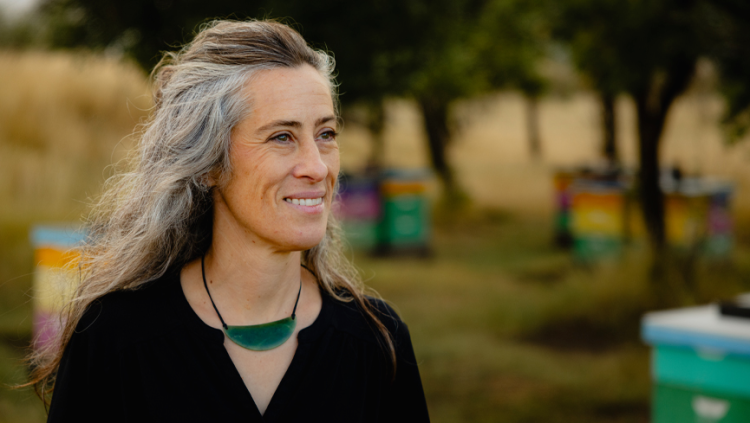It's hard being a honey bee these days. They face attack by mites and parasites, pesticides and extreme weather events associated with climate change, such as floods, droughts and fires, all of which make it increasingly difficult for honey bees to thrive.

Honey bees are vital for pollination of many crops, including high-value crops like blueberries, canola hybrid seed production and canola as a commodity. The result of high mortality rates among honey bees is crops that are under-pollinated and produce lower yields.
Although importing honey bees from other countries has helped mitigate the losses, beekeepers largely prefer to use Canadian honey bees because they are better adapted to the climate, environment and pathogens.
"Given the pollination needs in Canada, becoming self-sufficient in honey bee production is essential," says Dr. Shelley Hoover, a University of Lethbridge professor and bee expert. "Producing more Canadian queen bees would certainly help alleviate the shortage of local honey bees."To work towards that goal, Dr. Leonard Foster from the University of British Columbia and a group of collaborators including Hoover, have been awarded a Natural Sciences and Engineering Research Council Sustainable Agriculture grant worth nearly $4.5 million over four years, of which close to $760,000 is coming to the University of Lethbridge.
The researchers want to develop methods for over-wintering queen bees as a step towards creating a more sustainable and resilient agriculture sector.
Canada's climate makes it difficult for beekeepers to raise new queens early enough in the spring to produce large colonies in time for pollination. One solution could be to produce those queens in the preceding season and overwinter them for sale in the spring. Beekeepers do overwinter bees, but typically it's a whole colony with a single queen. To become self-sufficient, many more queens are needed. The researchers propose to overwinter queens in small nucleus colonies. They'll be collaborating with beekeepers involved in commercial queen production, as well as technology transfer programs to ensure the development of usable methods and procedures for beekeepers.
"We want to help ensure resiliency and self-sufficiency in the Canadian bee supply that will lead to more income for beekeepers and farmers and more calories produced with a net-negative impact on greenhouse gas emissions," says Hoover.
Hoover will be the featured speaker at the next PUBlic Professor Series talk on Wednesday, Oct. 30 at 7 p.m. at the Agri-food Hub & Trade Centre. Her talk is titled Fiat Lux (or, why honey bees are practically magic).













